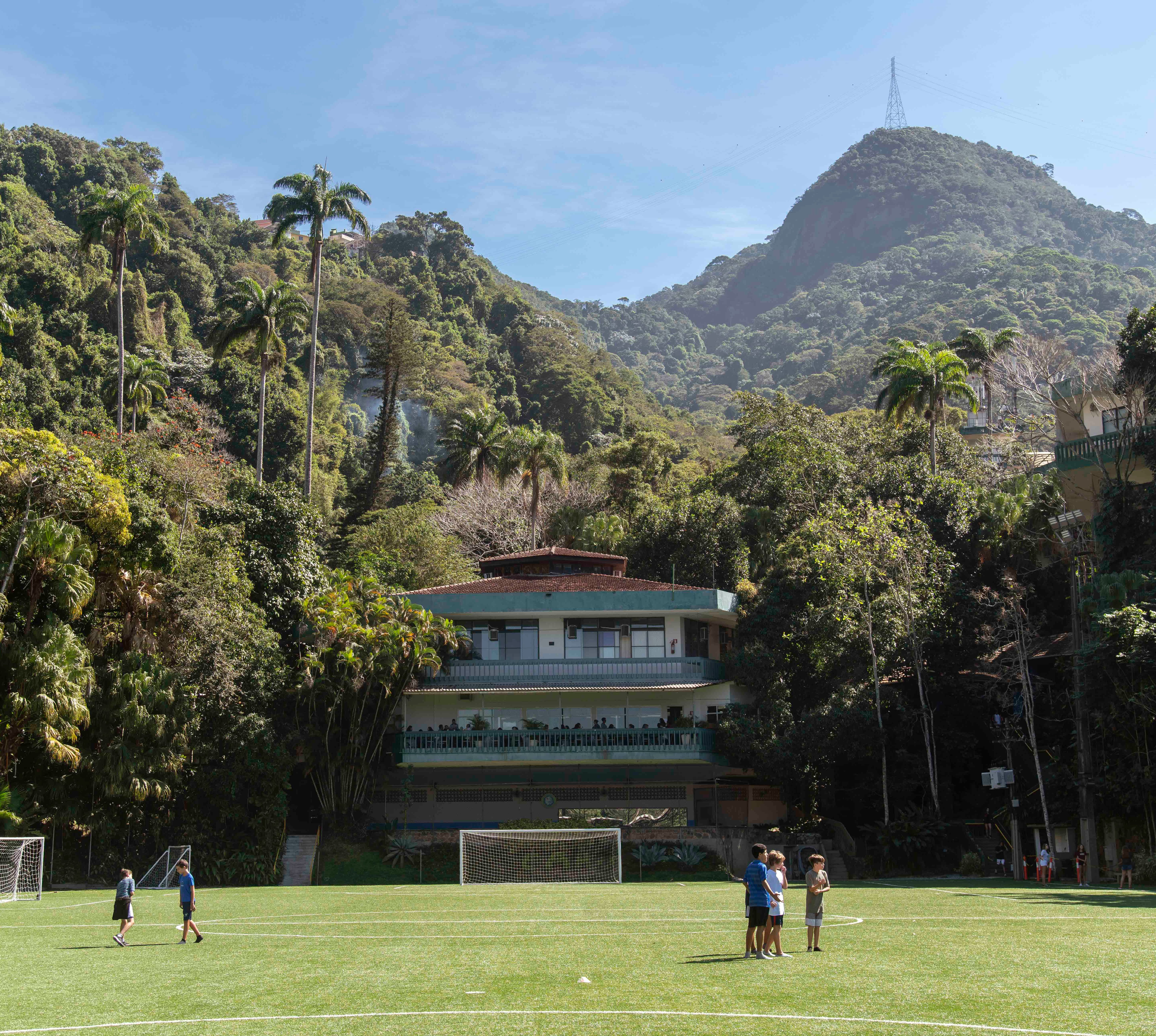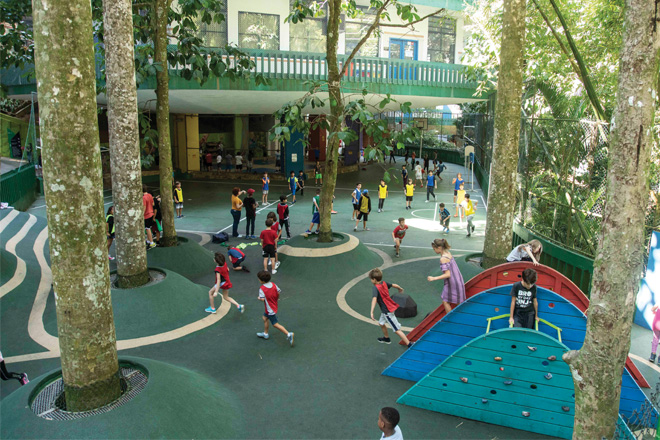Article by Emilia Ferreira, Escola Americana do Rio de Janeiro
All photos courtesy of Escola Americana do Rio De Janiero
Escola Americana do Rio de Janeiro (EARJ) is an urban school, and like other urban schools, is highly attentive to the safety of our students, both on and off school grounds. Our backdrop, Rio de Janeiro, makes this especially challenging. While it is one of the most beautiful cities in the world, where people are happy and extremely hospitable, it is also a 12-million-person metropolis with high levels of urban violence associated with low economic growth and wide social disparities.

Our main campus, built in 1969, is located on the hillside of an urban forest. Over the years, a poor neighborhood adjacent to the school called Rocinha became a home for workers migrating from the impoverished Northeast of the country to Rio. Rocinha's rapid growth was chaotic, and lack of attention from local authorities led to the prevalence of drug gangs. This is part of life in Rio now, and the school saw an opportunity to work together with the neighborhood to provide work and educational opportunities to residents, as well as to give our students a chance to interact and understand the social, cultural and economic aspects of our city.
A power struggle between rival gangs transformed the area into a battlefield for a few months in 2017. In the meantime, Rio entered a significant financial and political crisis, leading to diminished government investments in security. That September, a military intervention attempted to control the situation, and EARJ closed the campus for a couple of days as a precaution. On Thursday, September 28, 2017, when the school was closed, a group of gangsters used our parking lot as a passageway to escape, one member of the group entered school grounds, exchanging fire with the police at the gate. The gang member got away. Fortunately, nobody was hurt.
This event prompted us to review our crisis management plan and security protocols, perform risk assessments and identify areas in need of improvement. But most importantly, it showed us what a strong community our school had — evidence of a long-standing foundation of trust, transparency and collaboration between students, parents and staff.
Transparent Communication
We did the best we could to ensure that we conveyed accurate, transparent and timely information to all of our stakeholders. It’s critical for schools to identify reliable sources of information such as the police and other local authorities, as well as the most effective communication channels. While this can be challenging in the era of instant communications and WhatsApp groups, it is critical to inform families through official communications to reinforce trust in our school community.
The security team, administration and board stayed in constant contact with the community from the moment we decided to cancel classes to the days following the eventual return of the students to campus. We sent out daily security updates to parents and staff, and ensured every single question was answered on an individual basis. Board letters to the community were circulated, press consultants were put on stand-by, and principals and teachers were in regular contact with the students.
It was important for our community to connect and support each other in any way that we could. To make sure that happened, we implemented a phased return to school, working our way back to a normal routine in stages.
A Phased Return
This event caused an understandably high level of anxiety in the school community, at a moment when the whole city was already under alert and stress. It was important for our community to connect and support each other in any way that we could. To make sure that happened, we implemented a phased return to school, working our way back to a normal routine in stages.
First, the leadership team, counselors, admissions, HR and IT teams returned to their normal operations and discussed the next steps. Then we held a town hall meeting with parents and staff to help everyone feel more informed and supported, and give them the opportunity to visit the campus before students returned. Teachers and assistants returned next and shared questions and concerns with administrators so that we could make sure that they were confident to welcome students back. We also provided our staff with on-site counseling support to help them deal with the trauma of the event. The students returned to regular classes soon thereafter, and extracurricular activities resumed the following week.
Community Connections
EARJ has a strong relationship with our neighbors in Rocinha, and it is important that both the school community and the neighborhood see each other as partners and neighbors. We organize several service and athletic activities, as well as educational initiatives for children and job opportunities for workers in Rocinha. Schools in areas that face security challenges will greatly benefit from a transparent and collaborative relationship with their surrounding neighborhoods. It is also in the best interest of our students to become more active members of the local community.
One of the lessons we learned was that as horrible as crises are when they happen, they are opportunities to build and reinforce community at a time when those connections are most needed. The roots of that community need to be deep, trustful and maintained over time.
At EARJ, we also benefit from close relationships with local authorities and the Regional Security Office at the local consulate U.S. consulate. Government constituencies can be instrumental to your crisis plan, not only by providing you with security assessments, training and grants, but also by offering otherwise inaccessible intelligence about regional events.
Looking back on the events of September 2017, one of the lessons we learned was that as horrible as crises are when they happen, they are opportunities to build and reinforce community at a time when those connections are most needed. The roots of that community need to be deep, trustful and maintained over time. When times of crisis occur, the strength of a community is what sustains it when under attack.
Emilia Ferreira is business manager at Escola Americana do Rio de Janeiro, Brazil, a K–12 American International school with 1,200 students on two campuses. She was a 2019 recipient of the NBOA Will J. Hancock Unsung Hero award, given to business officers who have made extraordinary contributions to their schools and exemplify exceptional integrity, knowledge and motivation.
Download a PDF of this article.



